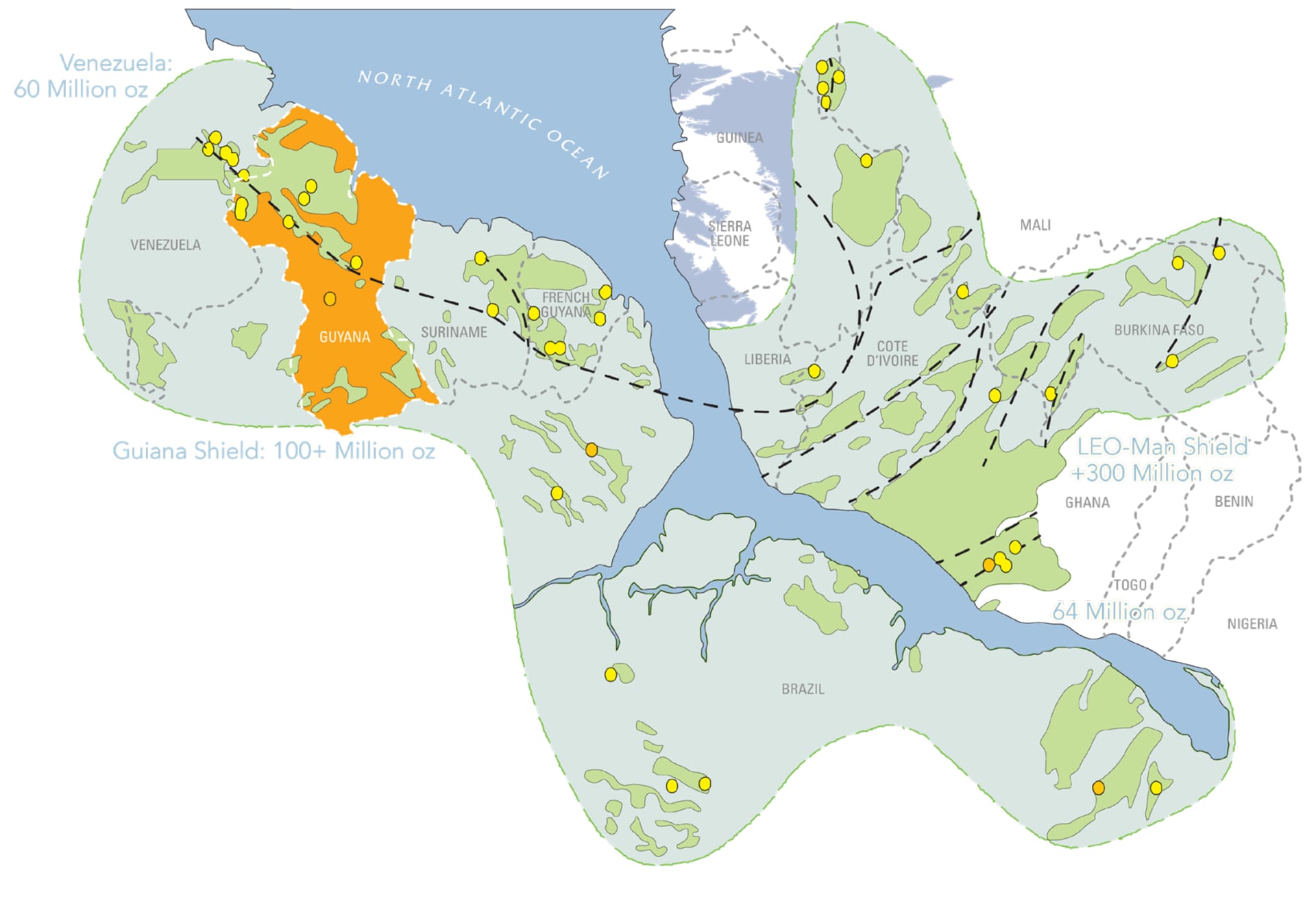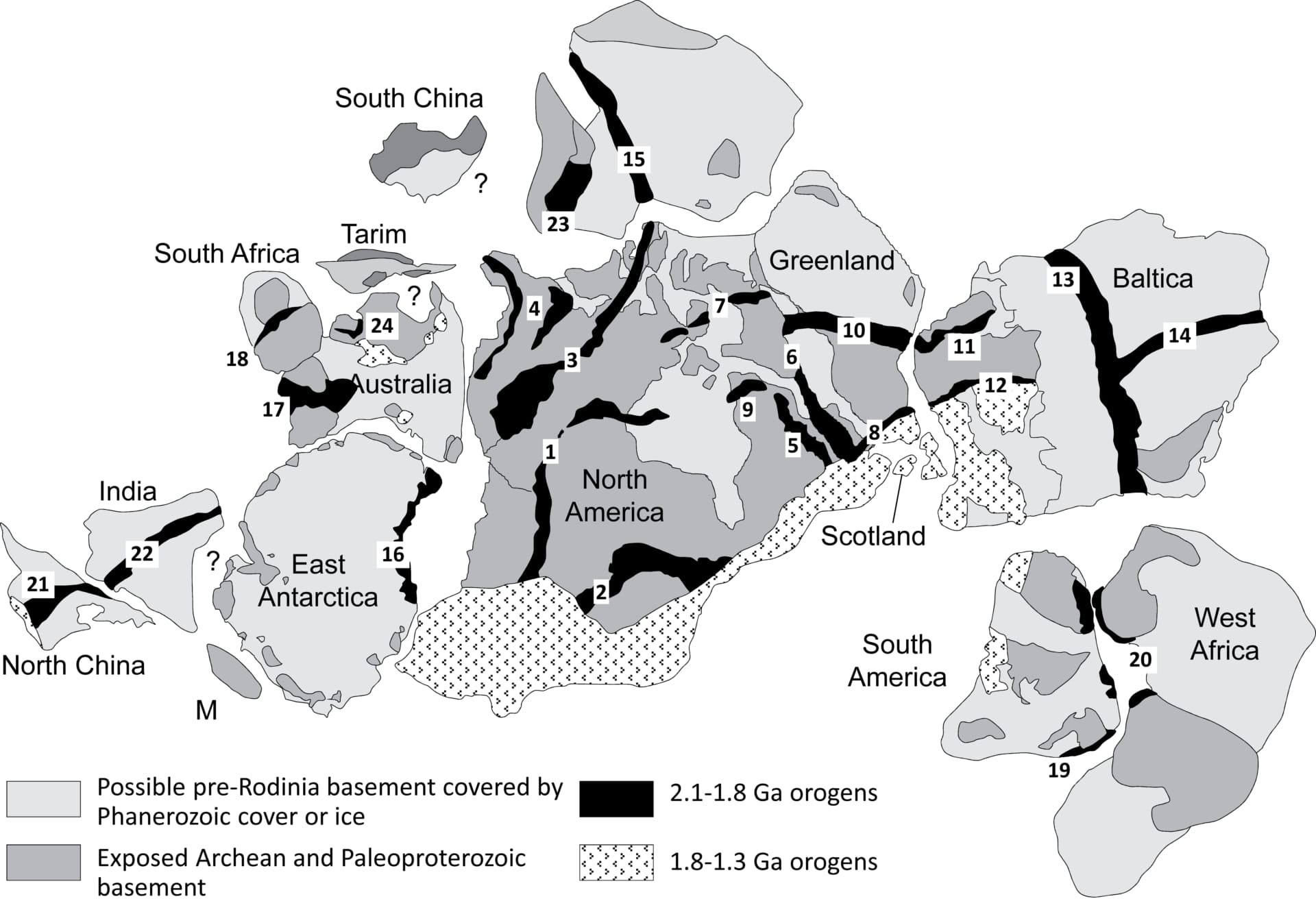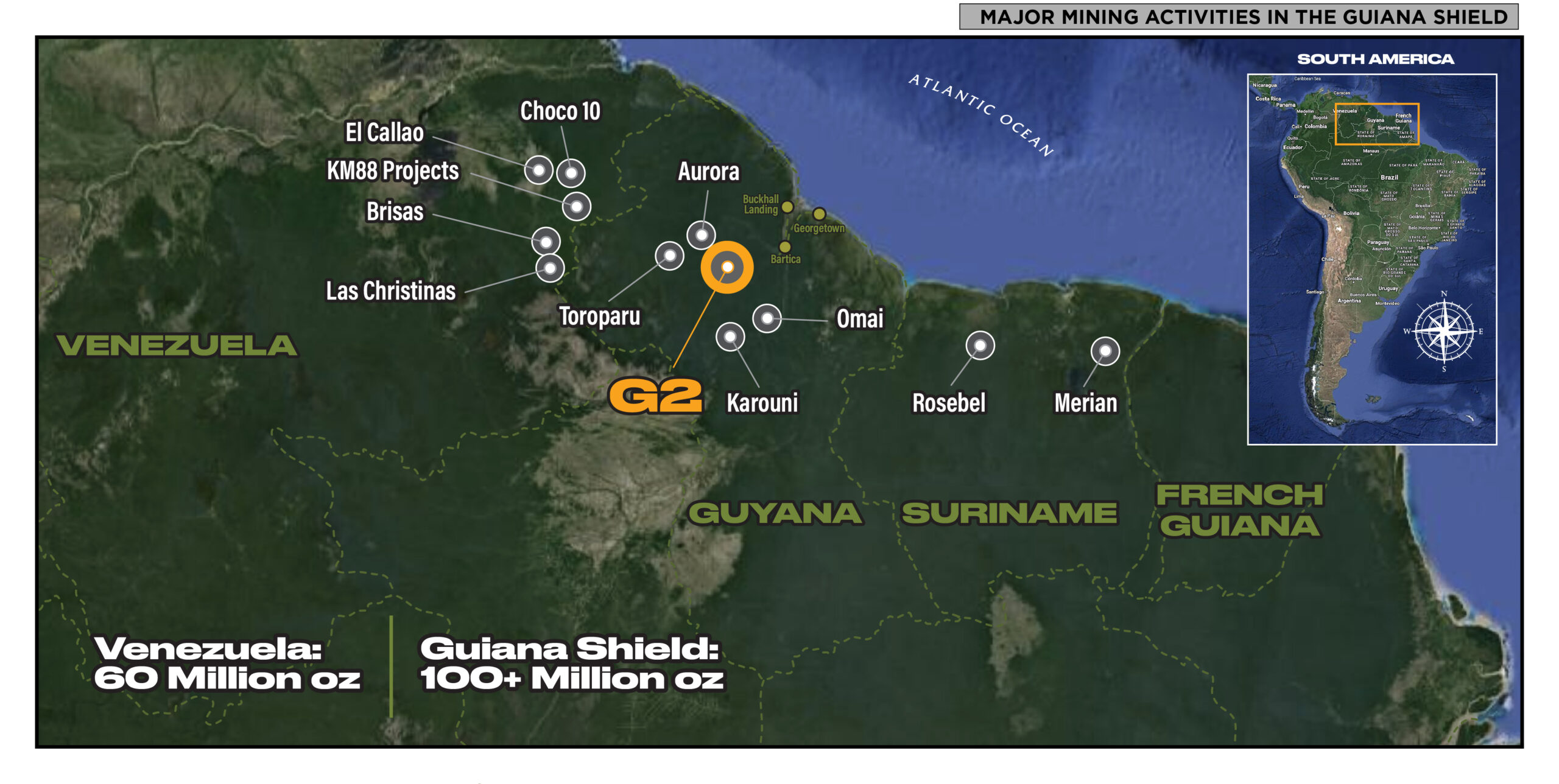GUIANA SHIELD
500+ Moz West Africa: Premier Paleoproterozoic Gold Province
West Africa, with presently an approximate 10,000 metric ton (t) gold endowment, is one of the world’s great gold provinces and the largest Paleoproterozoic gold-producing region. The gold resources are concentrated within the 2250 to 2000 Ma (mega annum) greenstone belts of the Man-Leo Shield, forming the southern part of the West Africa craton.
Most of the major orebodies are best classified as orogenic gold despot types, although there are paleoplacer and porphyry-skarn despots within some of the greenstone belts, and perhaps local intrusion-related gold systems. The gold-hosting, mainly greenschist metamorphic facies greenstone belts are dominated by the tholeiitic volcanic rocks, with clastic and chemical sediments filling adjacent subbasins.
The West African Craton is known for multiple gold deposits, located in the lower Proterozoic volcano-sedimentary sequences. Some of the gold deposits in production include Obuassi, Ashafo and Boguso gold deposit in Ghana; the Sadiola, Fecola, and Tabakoto deposits in Mali; the Saboala deposits in Senegal; the Essakane, Taparko-Borum, Mana and Youga deposits in Burkina Faso.
Based on tectonic and geochronological data, it is presumed that the Amazonian and West African Craton were part of the Gondwana continent and were joined before the opening of the Atlantic Ocean during the Mesozoic Era.
100+ Moz Guiana Shield
The Guiana Shield contains the elements of Orogenic Gold, Conglomerate-hosted gold, Transamazonian / Birimian green-stone terrane, making it favourable for exploration. G2’s properties are located in the heart of the Guiana Shield. A large part of the Shield is still underexplored, due to its sparse population, limited rock outcrops, and the dense tropical forest. Gold discoveries and numerous small scale, alluvial mining, and exploration activities demonstrate the excellent gold potential of the Guiana Shied.
- Venezuela: Las Christinas, El Callao, & other in the Kilometre 88 district
- Guyana: Omai Mine, Aurora Mine, & Toroparu gold project
- Suriname: Gros Rosebel Mine & Merian Mine
[Richard J. Goldfarb, Anne-Sylvie André-Mayer, Simon M. Jowitt, Gavin M. Mudd; West Africa: The World’s Premier Paleoproterozoic Gold Province: Economic Geology (2017); 112 (1): 123-143. DOI: 10.2113/econgeo.112.1.123]




